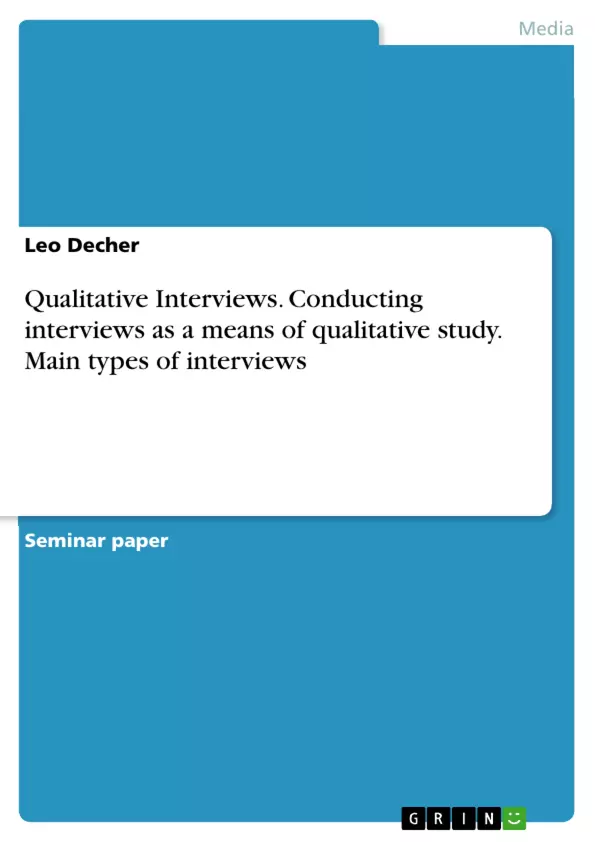With regard to educational income and school development technological progress offers increasing possibilities in the fields of knowledge transfer and classroom management. This is especially reflected in so called ‘iPad classes’ that were initiated at the ‘Realschule’. Those classes are part of a pilot experiment in the Bavarian mainstream system. According to the school’s website the desired advantages are, amongst others, fast availability in group work periods, reinforcing medial competence, individual learning and quick access to educational contents from the internet. I came to visit such classes during my first student internship in 2013. Now that a couple of years have passed I aim to find out in how far teachers and pupils think that it had been a good choice for them to take part in this project. Therefore, I am going to conduct interviews with both a participating teacher and two students. The interviews will cover advantages and disadvantages that come to the interviewees’ minds concerning the daily use of tablet computers at school as well as ideas the respondents have to keep improving the educational contact with innovative learning tools such as iPads. This research will be prepared, conducted and evaluated on a qualitative level.
Inhaltsverzeichnis (Table of Contents)
- Introduction
- The Aim of this Term Paper
- Structure
- Theory
- Conducting Interviews as a Means of Qualitative Study
- Types of Interviews
- Advantages and Disadvantages of Interviews
- Recording Interviews
- Developing the Interview Procedure
- Preparation
- Auxiliaries
- Premises
- Conduct
- Evaluation
- Practice
- Briefing
- Interviewing
- Transcription
- Evaluation
- Summary
- Analysis
- Conclusion
- Evidence
- Reflection of the Practice
- Outlook
Zielsetzung und Themenschwerpunkte (Objectives and Key Themes)
This term paper aims to investigate the perceptions of teachers and students regarding the use of iPads in a pilot experiment at a Bavarian Realschule. The research focuses on the advantages and disadvantages of integrating tablets in classroom learning, as well as identifying potential areas for improvement in the use of these innovative learning tools.
- The impact of iPads on teaching and learning in a real-world setting.
- The perspectives of teachers and students on the use of iPads in the classroom.
- The potential benefits and challenges of using iPads in the context of group work, individual learning, and access to online resources.
- The role of media literacy in the effective use of iPads for educational purposes.
- The potential for further development and improvement in the use of iPads within the school system.
Zusammenfassung der Kapitel (Chapter Summaries)
- Introduction: This chapter sets out the purpose and structure of the research, highlighting the increasing prevalence of technology in education and the specific focus on iPad classrooms at a Bavarian Realschule. The research aims to explore the experiences and perspectives of teachers and students involved in the pilot program.
- Theory: This chapter explores the theory behind qualitative interviews as a research method, focusing on their strengths and limitations. The chapter introduces various types of interviews, including structured, semi-structured, and unstructured, highlighting the key characteristics of each type and their suitability for gathering different types of data.
- Developing the Interview Procedure: This chapter delves into the practical aspects of planning and conducting qualitative interviews, addressing issues such as preparation, the interview process itself, and methods for evaluating the collected data.
- Practice: This chapter provides a detailed account of the interviews conducted with teachers and students, offering insights into their experiences and perceptions of using iPads in the classroom. The chapter also outlines the steps involved in analyzing the collected data.
Schlüsselwörter (Keywords)
This research explores the themes of educational technology, iPad classrooms, qualitative interviews, student perspectives, teacher perspectives, classroom management, group work, individual learning, media literacy, and the potential for educational improvement through the use of innovative learning tools.
Frequently Asked Questions
What is the aim of the research on iPad classes?
The research investigates the perspectives of teachers and students regarding the use of iPads in a pilot project at a Bavarian Realschule, focusing on learning outcomes and media competence.
Which types of qualitative interviews are discussed?
The paper covers structured, semi-structured, and unstructured interviews, exploring their suitability for gathering educational data.
What are the main advantages of using iPads in school?
Key benefits include faster availability for group work, individual learning opportunities, and quick access to online educational resources.
How are the interviews evaluated in this study?
The study uses a qualitative approach, including transcription and a systematic analysis of the responses from participating teachers and students.
What challenges are associated with iPads in the classroom?
The paper explores potential disadvantages and identifies areas where educational contact and innovative tools still need improvement.
- Arbeit zitieren
- Leo Decher (Autor:in), 2016, Qualitative Interviews. Conducting interviews as a means of qualitative study. Main types of interviews, München, GRIN Verlag, https://www.grin.com/document/379170



